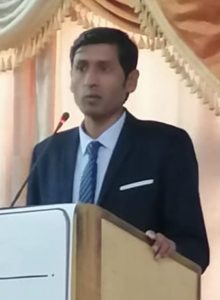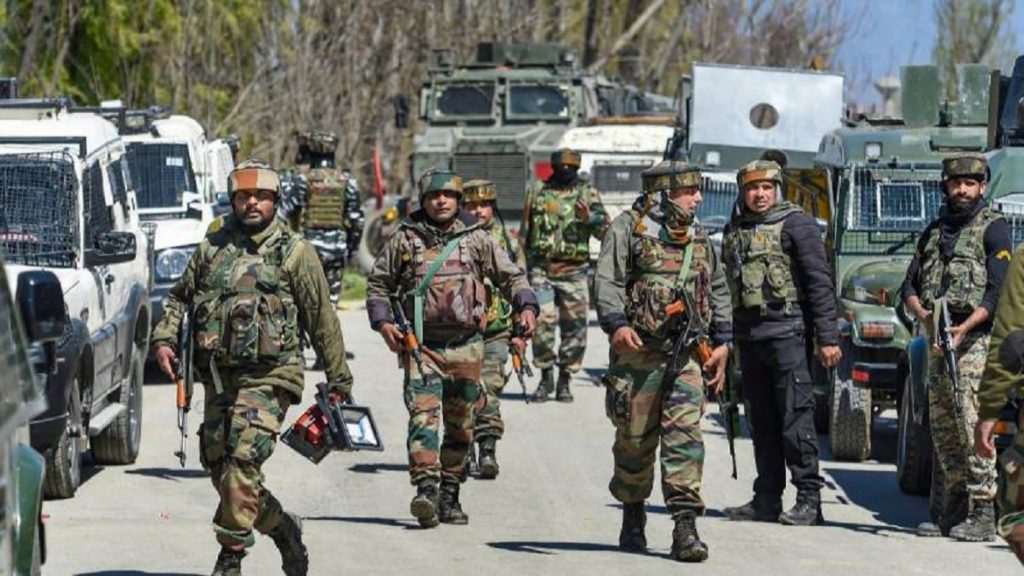By Dr. Mehmood Hussain
On December 10, 2023, the global community will observe the 75th Human Rights Day. Seventy-five years back, on the same day in 1948, the United Nations General Assembly (UNGA) adopted one of the world’s most groundbreaking documents: the Universal Declaration of Human Rights (UDHR).

This historical document recognized the inalienable and natural rights of human beings irrespective of race, religion, color, language, sex, political or other opinion, national or social origin, property, birth, or other status. For 2023, the United Nations adopted the theme of “Freedom, Equality, and Justice for All,” emphasizing the upholding of fundamental rights of individuals across the globe.
Although the United Nations has always strived to protect and promote fundamental human rights, the UDHR’s promise of dignity and equality in rights has been under a sustained and systematic assault in recent years.
The demonstrations of mass human rights violations by the states and non-state actors can be observed in different regions worldwide. This short brief outlines the massive human rights violations, state-sponsored genocide, and colonization in the Indian Occupied Jammu and Kashmir.
From Low Scale Human Rights Violations to Genocide and Ethnic Cleansing
Since 2014, India has been experiencing massive political change with BJP’s ascent to power. BJP, a right-wing Hindu nationalist party charged with the Hindutva ideology, has started a systematic and sustained assault against minorities in India. To deprive Muslims of their Indian nationality, the government has introduced the Citizenship Amendment Act 2019, as well as revoked the special status of Jammu and Kashmir on August 5, 2019.
The Jammu and Kashmir dispute between India and Pakistan hampering the peace and stability in South Asia. India has occupied the region with brute force involved in massive human rights violations, including murder, forced disappearances, torture, sexual abuse, illegal detentions to suppress freedom of speech and bans on religious gatherings. Around a million paramilitary troopers have been deployed to implement colonization.
Though India has colonized Jammu and Kashmir since 1947, the neo-colonization started after August 5, 2019. The special status enshrined in the Constitution of India through Article 370 and 35A protects Kashmir’s distinct religious, social, and territorial identity.
Article 370 recognizes Kashmir’s internal autonomy, whereas Article 35A ensures the region’s territorial integrity by prohibiting non-state residents from settling in the area. Nonetheless, Prime Minister Narendra Modi deprived Kashmir of its natural and inalienable right and annexed it with the Indian Union. The Modi government in New Delhi introduced a reorganization Act in 2019, dividing the region into three separate entities.
Furthermore, it also implemented the new Domicile Law, Land Management Policy, and Industrial Policy. The legislation brought Kashmir under the direct control of New Delhi, as the national regulations are equally implemented in the area. Furthermore, a governor appointed by New Delhi is carrying out the administrative functions of the state along with the assistance of the Indian Army. It is anticipated that the new legislation will slowly erode the Kashmiri identity by converting the Muslim majority into a minority.
The land management policy enabled the state to declare any area strategically essential and construct the facilities for military deployment. The policy also helped the military construct separate enclaves and colonies for serving and retired military soldiers and officers. Some facilities have already been constructed and functional. The new domicile law has opened the doors for Hindus to claim state resident status. Individuals who have lived in Kashmir for ten years or passed the secondary school from Kashmir can claim the domicile and purchase the land there.
Narendra Modi has been implementing the neo-colonization agenda in Kashmir through excessive force and neo-liberalist policies. The state land management policy, domicile law, and reorganization act are the manifestations of such policies of the BJP government. It is forcefully disappearing the Muslims of the region. In addition, it is completely transforming Muslim architects and structures through demolishing and reconstructing them with Hindu symbols. The BJP government has also renamed the major places, highways, and religious places to present their Hindu identity.The credible international human rights advocacy firms have confirmed ethnic cleansing, and war crimes in Jammu and Kashmir.
The United Nations, being a champion of human rights and global peace, has wholly failed to admonish India not to commit human rights violations. Despite its proclamation of freedom, equality, and justice, the people of Jammu and Kashmir are suffering from the extremist Hindutva ideology and losing their confidence in the international community. Suppose the United Nations truly wants to uphold the spirit of the Universal Declaration of Human Rights (UDHR). In that case, it needs to act decisively to stop the human rights violations in Jammu and Kashmir. If the United Nations succeeds in stopping India from committing mass human rights violations, then it has the right to observe the 75th anniversary of human rights; otherwise, it’s nothing more than slogans.
Author: Dr. Mehmood Hussain – Assistant Professor and Head of the Department of International Relations, the University of Azad Jammu and Kashmir Muzaffarabad, Pakistan.
(The views expressed in this article belong only to the author and do not necessarily reflect the views of World Geostrategic Insights)







